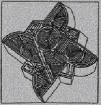Contact
Home
Projects
Events
Languages
|
|
Project A-25
Project Abstract
Morphophonological variation at word edges, or "phrasal allomorphy", such as word-final segment deletion or insertion, has played an important role in investigations of the interface
between phonology, morphology and syntax. What is specific to phenomena of phrasal allomorphy is that the context conditioning the alternation is larger than the word. Yet morphological theories often conceive of the word as the
privileged domain of morphophonological variation. Therefore, cases of phrasal allomorphy present a challenge to many theories of the morphological component. In investigating phrasal allomorphy, this project sets out to address the following questions:
-
What are the differing patterns of morphophonological
variation, or phrasal allomorphy, at word edges that are found in the Romance
languages?
-
How do rules of phrasal allomorphy evolve diachronically?
Are there general tendencies of development? May change be
said to be unidirectional, i.e., from prosodic rule to
phrasal allomorphy?
These questions shall be dealt with by studying different, but closely interrelated phenomena: on one hand, patterns of word-final vowel deletion which may be attributed to phonological processes, but which are nevertheless subject to morphological and lexical conditioning, and on the other hand, function word allomorphy, such as alternations in the form of determiners and pronouns, which historically relate to phonological processes like word-final vowel deletion, but which, under a synchronic perspective, can only be considered as morphological alternations. In investigating these phenomena, the project will focus on Italian, Piemontese and Catalan, because these languages exhibit particularly interesting patterns of morphophonological variation at word edges. We shall aim at both a synchronic and a diachronic view of the phenomena investigated.
Publications
|



